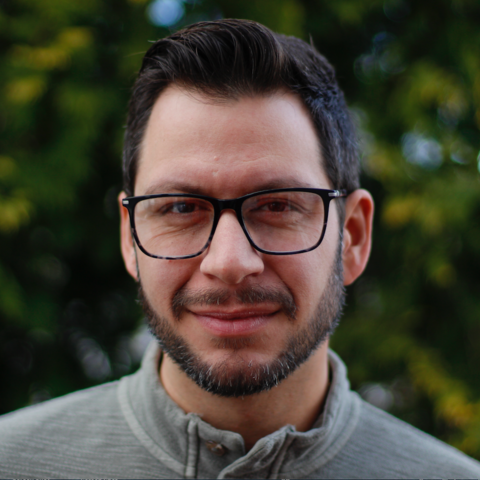
Section Branding
Header Content
Georgia Today: Republicans advance puberty blocker ban; Rivian update; First execution in four years
Primary Content
On the Tuesday, March 12 edition of Georgia Today: State lawmakers have approved language to ban puberty-blocking medication for transgender minors; Gov. Brian Kemp says electric car maker Rivian is still committed to Georgia; and the state is preparing for its first execution in more than four years.

Peter Biello: Welcome to the Georgia Today podcast from GPB News. Today is Tuesday, March 12. I'm Peter Biello. On today's episode: State lawmakers have approved language to ban puberty blocking medication for transgender minors. Gov. Brian Kemp says electric carmaker Rivian is still committed to Georgia; and the state is preparing for its first execution in more than four years. These stories and more are coming up on this edition of Georgia Today.
Story 1:
Peter Biello: State Senate Republicans are pushing a ban on puberty blocking medications for transgender minors. The language banning the medications was added to a bill that would require overdose reversal drugs in government buildings. Democrats say they were blindsided by the addition, which could put the whole bill at risk. The bill made it out of committee and now has to pass both the House and Senate. The state legislature passed a law last year that bans hormone therapy for transgender youth, but puberty blockers were still allowed.

Story 2:
Peter Biello: Gov. Brian Kemp says electric carmaker Rivian is still committed to Georgia. His comments today were the first since the company announced a pause in its plans to build a new model, the R2, at a site east of Atlanta. Kemp says he spoke to Rivian CEO before the announcement last week and understands, but doesn't like the economic rationale for it.
Brian Kemp: For us, it's disappointing. I mean, we were looking forward to them going vertical and building the first R2 here, but they're still — you know, everything they're telling us they're still committed. They can still meet the metrics that they have to under our contract.
Peter Biello: Rivian said it'll build the R2 at an existing factory in Illinois to get it to market faster. Kemp says the site near Social Circle has been cleared and graded and is now, quote, "more valuable" because of it.
Story 3:
Peter Biello: Georgia is preparing for its first execution in more than four years. 59-year-old Willie James Pye is scheduled to die by lethal injection on March 20 for killing a former girlfriend in 1993. Robin Maher of the Washington, D.C.-based Death Penalty Information Center says the resumption of executions comes as the state tries to move past an agreement that halted executions during the COVID-19 pandemic.
Robin Maher: And I think for very good reasons, they paused those executions. And I think that that's an agreement that they should stick to.
Peter Biello: Pye was not included in that agreement. Since last week, his lawyers have filed two lawsuits seeking to block the execution, both in state and federal courts.

Story 4:
Peter Biello: A nonprofit grocery store working to fight food insecurity in Atlanta, is asking the community to help them stay open and keep the shelves filled. Amanda Andrews has more.
Amanda Andrews: The grocery spot has been offering free groceries to the public since 2021, with a focus on teachers, students and health professionals. The store is run by volunteers and uses donations to offer fresh food to the public. Recently, the nonprofit moved to a much larger space in order to help more people. Volunteer coordinator Darius Tigner says demand has risen alongside the high cost of food.
Darius Tigner: We went from serving 300 to 400 people every day, and now we're at 850. So that number has increased significantly because, of course, people are still dealing with the expenses of food — food that's very pricey for the average household nowadays.
Amanda Andrews: The grocery store is open Monday, Wednesday and Friday from 3 p.m. to 6 p.m. Donations can be made online at thegroceryspot.org. For GPB News, I'm Amanda Andrews.

Story 5:
Peter Biello: A new study has found that after a natural disaster strikes, renters get less assistance than homeowners. They also find it harder to move to new places and feel more acutely the squeeze of rising rents when the available housing stock is depleted. The study, by a group including Georgia Tech and the Brookings Institution, is among the first to expose the impact of disasters on rental housing markets. Brian An, assistant professor in the School of Public Policy at Georgia Tech, coauthored the research, and he's with me now.
Brian An: Thanks for having me.
Peter Biello: For this study, you looked at a lot of data, including ZIP code-level rent data. You also looked at grants for disaster recovery, and you also talked to renters to learn more about their experiences. What did they tell you about what they experienced in the wake of a natural disaster?
Brian An: We had some survivors of past disasters, and we heard how hard a situation they had to go through right after big hurricanes. Some of them had to pay rent even though power was shut off and there were not any proper services from rental housing service provider. And others, even though they were asked to evacuate the building, they really didn't have any plans prepared. So they actually wished to stay in the building, even bearing the risk of the disasters. Some even talked about some retaliation actions [from] bad landlords, describing how their post-disaster life experience has been traumatized.
Peter Biello: When we're talking about the policies that come into play in the wake of a natural disaster, is it that renters get less benefit from the existing policies than actual homeowners, or is it simply that the policies that are in place for homeowners don't apply to renters at all, and renters often get nothing?
Brian An: I think both are true.
Peter Biello: Depending on the location, perhaps?
Brian An: No. Actually, the existing federal policy framework for disasters really doesn't care much about the renters. It's mostly exclusively focused on homeowners because you have — when you claim for your damage is focused on real estate damage, not personal property damage. And what we heard from one of the relief service providers is that FEMA, they do not accept photographic evidence. So renters — it would be very hard for them to prove their damages.
Peter Biello: You argue in this study that renters need more representation. What do you mean by that?
Brian An: Yeah. We are not necessarily talking about political representation, though that would be also needed. We are more broadly talking about the spaces for renters in the policy domain, in terms of the availability of policy options or instruments for renters and the eligibility of policies that are focused on renters, especially low-income renters who tend to live in older housing stock, which also tend to be located in high-risk climate zones. And also those in subsidized housing, who would have the least means to deal with the impact of natural disasters. So currently, we don't really have all these policy options for renters at the federal policy framework. But we know that some state and local governments have been experimenting with their regulatory power. For example, we know that some local governments have adopted anti-rent-gouging laws or eviction moratoria in the wake of natural disasters so that they can protect renters. But these kinds of approaches could be also considered at the federal level, or maybe incentives to state and local governments in exchange for disaster recovery funding.
Peter Biello: Well, Brian, an assistant professor in the School of Public Policy at Georgia Tech and coauthor of this research. Thank you so much for speaking with me. I really appreciate it.
Brian An: Thanks for having me.
Peter Biello: And you can find a link to the study at GPB.org/news.
Story 6:
Peter Biello: Authorities have arrested the last suspect in the largest-ever indictment in the Southern District of Georgia. The FBI says fugitive David Young was captured in the Mexican state of Sonora and brought back to the United States on Sunday. He and 75 other people were indicted on charges related to drug trafficking in Operation: Ghost Busted in January 2023. U.S. Assistant Attorney for the Southern District Jennifer Kirkland says the prosecutions since then have proceeded quickly.
Jennifer Kirkland: 71 defendants have already pled guilty. And then we are awaiting one who is having a psych evaluation and one who is about to plead guilty in a couple of weeks. Mr. Young is the only person who is awaiting trial out of the 76 defendants.
Peter Biello: Prosecutors say the conspiracy led to the deaths of three people. Kirkland says after the operation was taken down in January 2023, drug overdoses in the Brunswick area decreased by half.
Story 7:
Peter Biello: In sports, NFL quarterback Kirk Cousins is leaving Minnesota for Atlanta. Cousins and the Falcons have agreed to a four-year deal potentially worth up to $180 million. His move to Atlanta was first announced by his agent, Mike McCartney. In his dozen years in the NFL, he's thrown for more than 39,000 yards and 270 touchdowns. He's been selected to play in four Pro Bowls. And in the NBA, Atlanta Hawks forward Saddiq Bey will miss the rest of the season after tearing the ACL on his left knee. The Hawks already were playing without two starters, top scorer Trae Young and Jaylen Johnson. Now they've lost another starter while mired at 29 and 35 and holding on to the final play-in spot in the Eastern Conference. Bey was injured in a loss Sunday night to the New Orleans Pelicans. So far this season, he's been averaging 13.7 points and 6 and a half rebounds per game. The Hawks face the Portland Trail Blazers tomorrow.
Peter Biello: And that is it for this edition of Georgia Today. Thanks so much for tuning in. If you want to learn more about any of these stories, visit gpb.org/news. And if you haven't yet subscribed to this podcast, I highly recommend it. It's a great way to stay on top of the news and really useful for your commute home as well. Subscribe to Georgia Today wherever you get your podcasts. And if you've got feedback for this podcast or maybe a story idea, we'd love to hear from you. Send us an email. The address is GeorgiaToday@GPB.org. I'm Peter Biello. Thanks again for listening. We'll see you tomorrow.
---
For more on these stories and more, go to GPB.org/news



